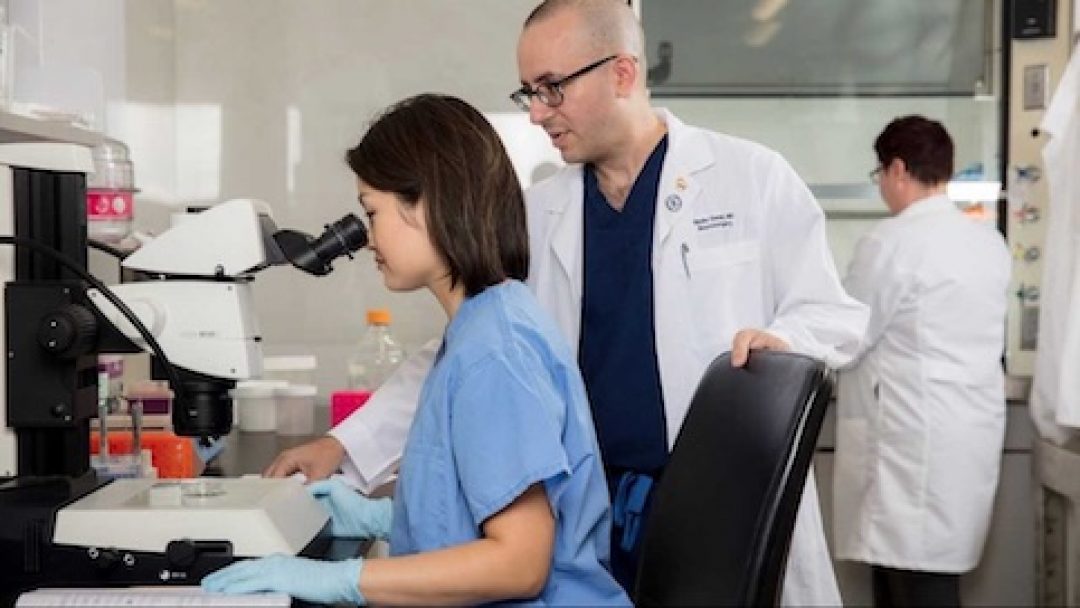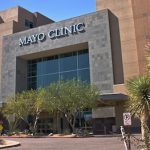A recent announcement from the Barrow Neurological Institute confirmed that the institute will be opening the Ivy Brain Tumor Center. Thanks to the private, Scottsdale-based Ben and Catherine Ivy Foundation, the project will be financed, at least partially, with the $50 million commitment made by the foundation to the institute.
The focus of the new center will be improving outcomes of brain-cancer by offering individualized, experimental clinical trials. Hoping to improve the odds for brain cancer survival is the primary goal of the center. Great focus will be placed on glioblastoma, according to neurological oncologist Dr. Nader Sanai, who will be directing the center, referring to the cancer as “the most complex biological cancer.”
“High risk, high reward” treatment therapies will be primary options available to patients diagnosed with the terminal cancer Dr. Sanai said. Although, he hopes one day we can treat glioblastoma as a chronic disease with little to no influence on life expectancy. “If you can find a way through glioblastoma, all of the others are comparatively less complex,” Sanai said. “The challenge of glioblastoma is that it has so many mutations. It is so dynamic, meaning it changes day by day. It’s almost impossible to anticipate and has incredible resistance to drugs.”
U. S. Sen. John McCain recently passed away, just weeks before the Barrow announcement, and his battle with glioblastoma brought much awareness to the disease nationwide. Funding for the Ivy Brain Tumor Center was started long before McCain was diagnosed, and the timing of his death and the announcement is simply coincidence.
“It took several years to iron out the details,” Sanai said. “This is a ground-up effort, including facilities, personnel recruitment, and research programs. We have a lot of work ahead of us.” Regardless of each patient’s diagnosis, individualized options will always include one that is experimental therapy. The goal is to complete up to 35 clinical trials involving a potential 750 patients over the next 10 years.
Of course, the ultimate dream goal for the center will be to cure brain cancer, according to Catherine Ivy, the president of the Ben and Catherine Ivy Foundation. Ben Ivy, Catherine’s late husband, died of glioblastoma in 2005. Investing in the Ivy Brain Tumor Center on the Barrow campus comes after the foundation has already invested millions of dollars into researching gliomas, which are malignant tumors occurring in the brain or along the spinal cord. “After years of assessment, we have decided to invest in the Ivy Brain Tumor Center at Barrow,” Ivy said. “The more we discover, the more we can do to help patients and their families.” Nearly 90 percent of glioblastoma patients live to see two years after diagnosis.
After being diagnosed with glioblastoma in December of 2017, Avondale resident Leslie Casillas, 40, will be one of the first patients hoping to take advantage of the opportunities offered at Barrow’s new brain-tumor center. Although Casillas previously had surgery to remove a malignant tumor, it grew back. Currently she is participating in the Phase Zero trial, which is hoping to lower the failure rate of clinical trials.
Phase Zero is one of only six clinical trials available at Barrow for brain-cancer patients. Two primary questions separate the Phase Zero trial from others and are asked prior to initiating any drug regimen: First, are the drugs reaching the tumor; and, second, is it working on the tumor on a molecular level. “Many of the drugs we use for brain-tumor patients don’t get into the brain. The brain is designed to keep things out, so it’s very difficult to design drugs that get through the blood-brain barrier,” Sanai said. “If the drug is not getting into the brain in the first place, there’s no point in even giving it,” he continued.
After extensive genomic and genetic analysis of tissue from Casillas’ first surgery, she will soon begin a drug regimen of a lung-cancer drug, called LDK378. Then, approximately 10 days later, she will have the tumor surgically removed. Novartis and Barrow have entered into a partnership to test the drug as a viable option for brain cancer treatment.
“While the patient is recovering from surgery, we already know whether this experimental drug can work for them and should work for them, or if it shouldn’t even be tried for them,” Dr. Sanai said. “They basically find this out before they lose any time at all.”
Within a week of her surgery, the doctors will have a better understanding of how LDK378 is working as a treatment option. Depending on the results, Casillas could avoid side effects from a drug that may have no effect on the cancer. “If the answer is no, that is just as valuable as anything else,” Sanai said. “She’s better off knowing that now.”
Dr. Sanai is optimistic about the progress that can be made regarding brain-cancer treatment and survival rates. Just as there were great strides in advancing drug development by better understanding the genetics of melanoma and breast cancer, survival rates may improve quickly with glioblastoma research as well.
For more information on the Ivy Brain Tumor Center, click here to visit their website.








